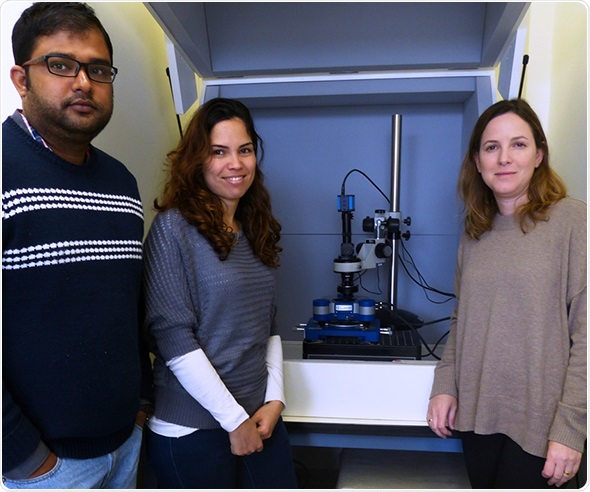JPK Instruments, a world-leading manufacturer of nanoanalytic instrumentation for research in life sciences and soft matter, reports on the use of their NanoWizard® AFM system in the Institute of Chemistry of the Hebrew University of Jerusalem.
The Hebrew University of Jerusalem was founded in 1918. It is Israel's premier university as well as its leading research institution. It stresses excellence and offers a wide array of study opportunities in the humanities, social sciences, exact sciences and medicine. The university encourages multi-disciplinary activities in Israel and overseas and serves as a bridge between academic research and its social and industrial applications.

Dr Meital Reches is a senior lecturer in the Institute of Chemistry. The activities in her lab focus on developing new biomolecular self-assembled systems and the study of proteins and peptides interactions with surfaces. The goals of her team are first to understand how proteins/peptides interact with inorganic surfaces. This question is very important to many areas including the design of new implants because when an implant is inserted into the body, proteins are adsorbed on its surface. These proteins will mediate the immune response towards the implant. This is also important for the synthesis of novel composite materials as sophisticated composites are formed in nature through the interactions between proteins and inorganic minerals. Moreover, if they are able to control the interaction between protein and inorganic materials, they would be able to design materials that will resist biofilm formation (antifouling materials).
Secondly, they wish to design functional peptide-based materials. Nature exploits simple building blocks to generate complex architectures through the process of self-assembly. Understanding this process is essential for areas ranging from drug discovery to materials science. Peptides, specifically, can be used as a simple system for the study of molecular self-assembly, and hold a great promise in the area of nanotechnology as they are biocompatible, versatile, and can be easily decorated with biological and chemical entities. To mimic nature and form complex architectures by self-assembly, the lab explores new strategies for the discovery of novel peptide-based nanostructures and their organization on surfaces.
Describing her use of atomic force microscopy, Dr Reches says “We use AFM to perform single molecule force spectroscopy measurements. We attach an amino acid, a peptide or a protein to the AFM tip and study its interaction with different inorganic substrates. In addition we use the AFM for imaging peptide assemblies. I find the system is very friendly to the user when I compare it to other AFM systems. In addition, the force spectroscopy mode is very reliable and fast.”
Dr Reches has published several papers illustrating her applications of the NanoWizard® AFM. These include “a study of the self-assembly of a tripeptide into a functional coating that resists fouling1” and “the co-assembly of aromatic dipeptides into biomolecular necklaces.2”
For more details about JPK's NanoWizard® AFM and its applications for the bio & nano sciences, please contact JPK in the USA on (408) 807 8878 and in Germany on +49 30726243 500. Alternatively, please visit the web site: www.jpk or see more on Facebook: www.jpk.com/facebook and on You Tube: https://www.youtube.com/jpkinstruments.